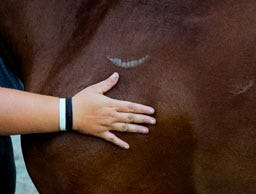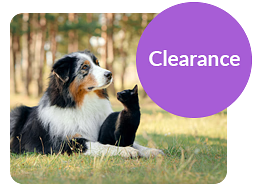What is the Best Worming Treatment for Dogs?
Maintaining your dog's health and well-being is your sole responsibility as a pet owner. Not only does this mean providing them with appropriate food and taking them for checkups with the vet, but also keeping up with their routine worming treatments.
Here, we’re going to talk you through the different types of dog wormers to help you decide which is the best worming treatment for your dog.
Which Wormer is Best for Your Dog
When choosing your dog wormer, there are a few key things you should take into account, such as:
- The formula of worming treatment — How easy will it be to administer to your dog?
- The length of protection — How long until you need to readminister the treatment to keep your dog protected?
- What worms it treats and protects against — Will this treatment be effective for your dog?
- Your dog’s age — Some dog wormers are not suitable for dogs under a certain age or weight limit, so make sure you check before choosing.
How long the treatments last and what worms they specifically protect against can vary from brand to brand and even product to product. For routine treatments, we recommend you use a broad-spectrum wormer, such as the Prazitel Plus Tablet for dogs which offer protection from some of the most common intestinal worms, including roundworms, tapeworms, hookworms and whipworm.
If your dog is already suffering from a worm infestation, then we recommend consulting with your vet as soon as possible to find the most appropriate and effective treatment.

Types of Dog Worming Treatments
Wormers for dogs come in various formulas to make it quick and easy for you to administer them to your pet. Here, we’re going to look at the most popular types of worming treatments for dogs available and why you might want to consider them for your dog.
Dog Worming Tablets
Perhaps the most commonly found wormer for dogs is dog worming tablets, like these Beaphar WORMclear Worming Tablets. These small and easy-to-administer tablets are popular for several reasons, but mainly because they’re super easy to hide away in your dog’s food, so they don’t even realise they’re taking them.
Some brands even offer a tasty chewable worming tablet option, such as the Drontal Tasty Bone Wormer, so you can give the tablet to your dog as easily as you would a treat!
You can also hide dog tablets in pill-assist treats or use a pill giver if your dog is reluctant to take tablets.
Dog Worming Liquids
If your dog is particularly averse to taking tablets and not even hiding it their favourite food is enough to coerce them, then you should look into a worming liquid, like the Beaphar Worming Syrup. Worming liquids are easy to administer, even to dogs who hate tablets and can be given by mixing them with a little food or directly into their mouth. Most dog worming liquids are also flavoured to make it even easier to get them to take it.
Worming Powder
Another option for picky dogs is the use of a worming powder, like these Panacur 22% Granules for dogs. Much like with worming liquids, worming granules offer your dog protection against various types of intestinal worms and are easy to administer. All you need to do is mix the recommended dosage into your dog’s daily food or with a tasty treat.
Important Reminder: When mixing your dog’s treatments with food, always ensure they consume the recommended dosage for maximum efficacy.
Dog Worming Spot-on
Many cat wormers are administered as a spot-on solution that then works into the animal’s bloodstream, but is there a spot-on wormer for dogs?
The answer is yes. There are plenty of dog worming spot-on treatments available. However, many dog worming spot-ons are prescription dog wormers and so can’t be purchased without a valid vet prescription. That said, many prescription worming treatments from brands such as Advocate and Evicto are also formulated to treat fleas, ticks and other external parasites as well, saving you the fuss and hassle of having to administer two separate treatments.
If you would like to learn more about buying your dog’s prescription worming treatments online, then check out our prescription information page.
How Often Should You Worm a Dog?
In truth, this question depends on the treatments you’ve been using and what your dog’s behaviour is like. Most worming treatments offer between 1-3 months of protection, and many specialists recommend you treat an adult dog for worms at least four times a year.
That said, if your dog is more prone to scavenging, then a monthly treatment is more appropriate. Dogs typically pick up worms from their environment by consuming something contaminated with worm eggs or larvae and sometimes even from fleas. If your dog spends more time outside or is more likely to eat things they shouldn’t, they run a higher risk of developing an infestation.
You can find out more about where dogs pick up different types of worms in your guide to worming below.
Worming your dog is a necessary part of ensuring their health and well-being, but it doesn’t have to be a chore. Now you know the different types of treatments that are available with and without a prescription, we hope you can make a more informed decision when it comes to your dog’s routine healthcare.
Is your dog’s next treatment date coming up? Then check out our full range of dog worming treatments and find the perfect fit for your dog.
This post is an opinion and should only be used as a guide. You should discuss any change to your pet’s care or lifestyle thoroughly with your vet before starting any program or treatment.































